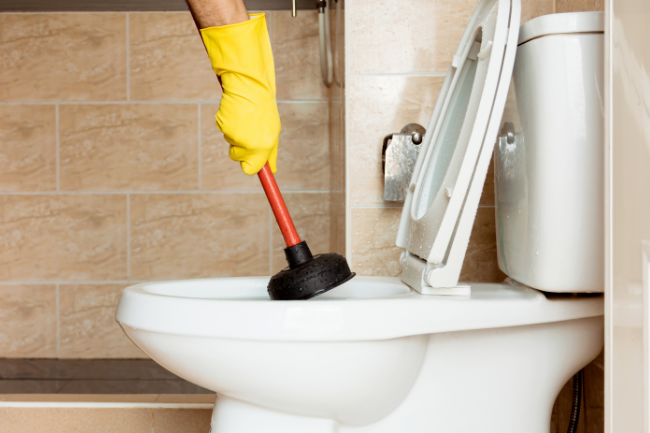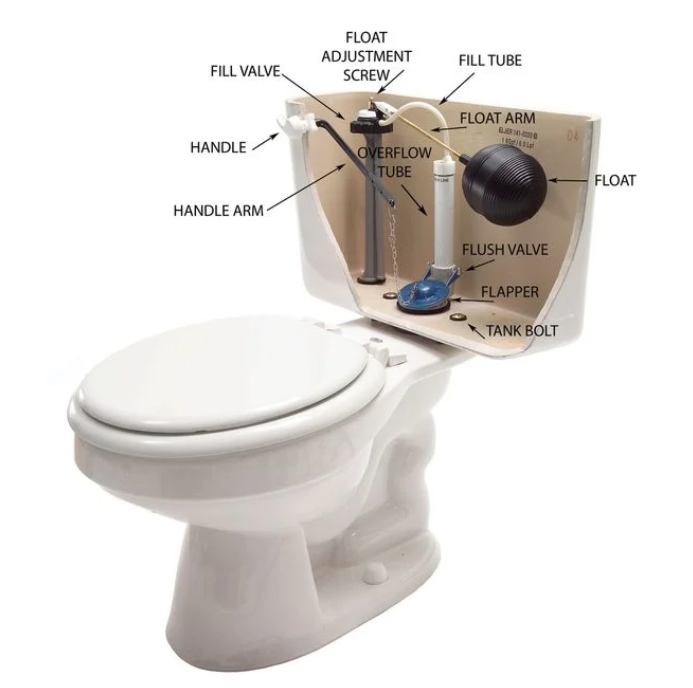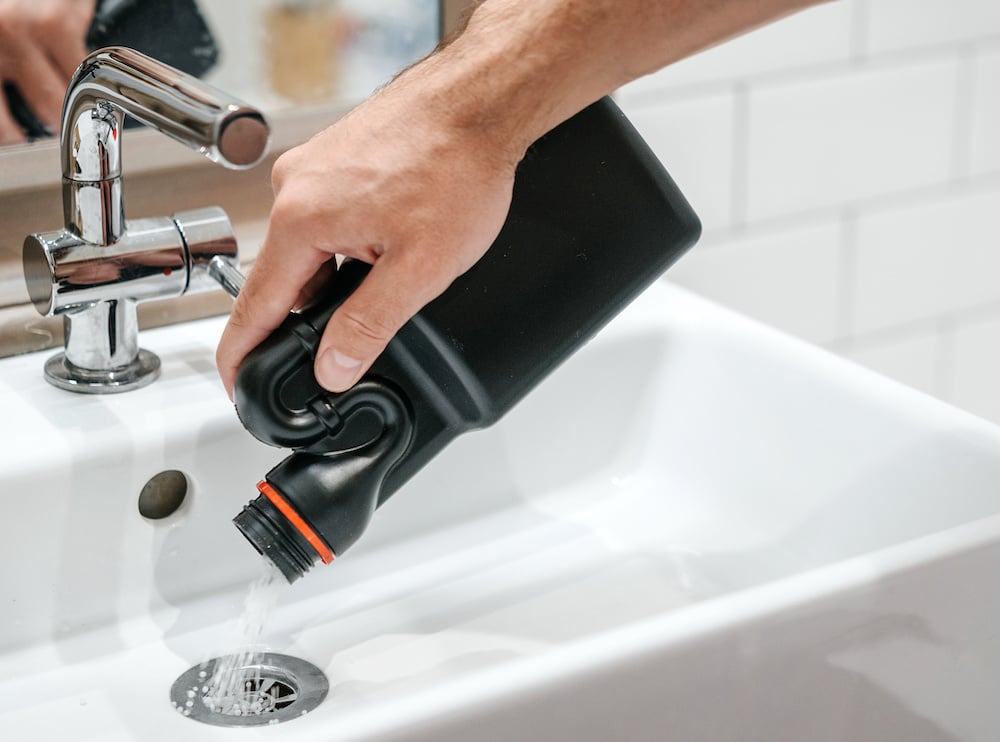Understanding the Different Types of Pipes in Your Commercial Building
Posted by William Heinselman on
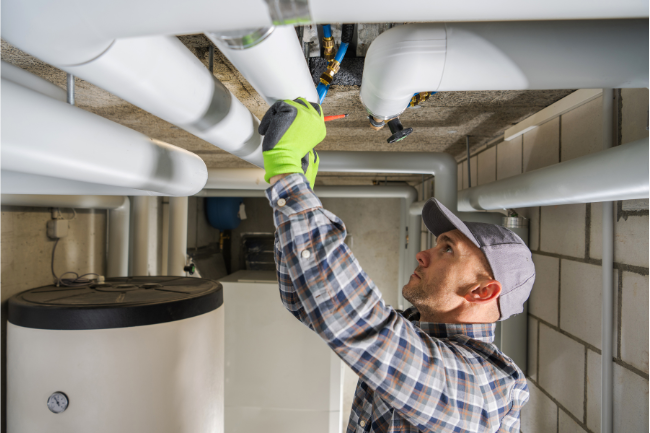
Understanding the materials used in your plumbing system is valuable knowledge that can be incredibly beneficial when plumbing issues arise. First and foremost, it allows you to make informed decisions when it's time to repair or replace components.
As a property owner or business owner, it’s important to understand the ins and outs of what kind of materials are best suited for your plumbing and why.
Common Types of Plumbing Pipes in Commercial Buildings
In commercial buildings, plumbing systems rely on a variety of pipe materials to meet specific requirements. The choice of pipe material in commercial plumbing depends on factors like water quality, budget, and the specific needs of the building's plumbing infrastructure. Here are some of the most common types of pipes in commercial buildings.
PVC
PVC (polyvinyl chloride) pipes are a prevalent choice in commercial buildings for a wide range of plumbing applications. Renowned for their affordability, durability, and versatility, PVC pipes offer several advantages. They are corrosion-resistant and well-suited for both cold and hot water supply lines, as well as for drainage and wastewater systems.
PVC pipes are lightweight and easy to install, making them a preferred option for various construction projects, including retrofits and new installations. Their smooth interior surface minimizes friction, which helps maintain efficient water flow. Additionally, PVC pipes are known for their longevity, making them a cost-effective choice for long-term plumbing solutions in commercial properties.
Brass
Brass pipes are a reliable and durable choice for specific plumbing applications in commercial buildings. Typically used for water distribution lines, brass pipes are known for their resistance to corrosion and high-pressure tolerance. This makes them a preferred option for delivering potable water, especially in older commercial structures where their long lifespan and robustness are particularly advantageous.
Brass pipes have excellent heat resistance, making them suitable for both hot and cold water systems. While they tend to be more expensive than some other materials, their longevity, and low-maintenance requirements make them a cost-effective investment for ensuring a dependable water supply in commercial settings.
Copper
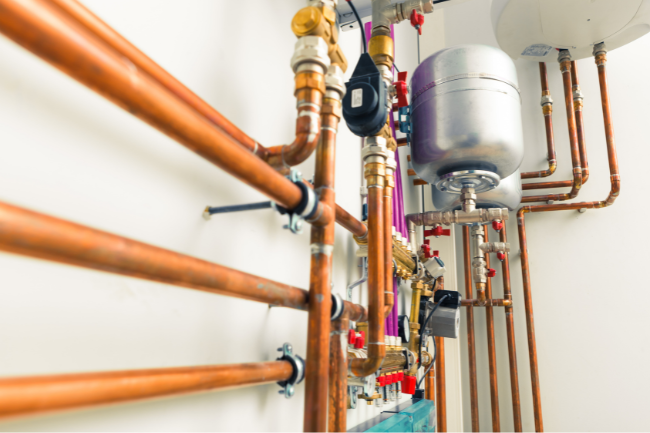
Copper pipes are widely employed in commercial buildings for their exceptional durability, reliability, and versatility in plumbing systems. Their corrosion-resistant properties make them ideal for carrying both hot and cold water, ensuring a long-lasting solution that minimizes maintenance costs over time.
Copper's malleability makes them easier to install, allowing for intricate designs and customized configurations to meet the specific needs of commercial structures. Additionally, copper pipes are renowned for their excellent heat conductivity, making them suitable for various applications, including heating and cooling systems.
In commercial settings where safety and long-term performance are paramount, copper pipes continue to be the preferred choice, providing a dependable and efficient plumbing infrastructure.
Stainless Steel
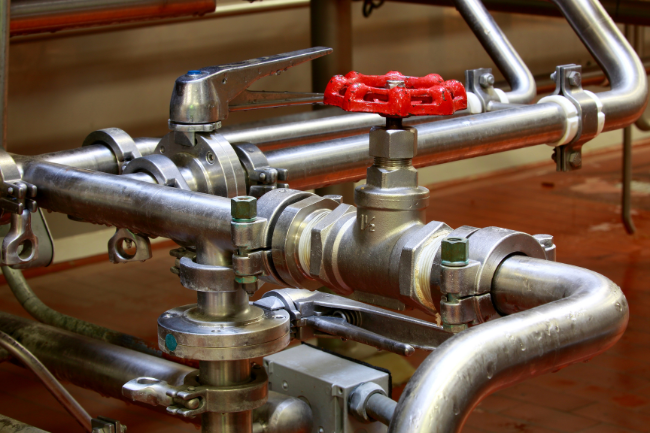
Stainless steel pipes are particularly well-suited for demanding environments where durability is crucial, such as in chemical processing plants or industrial kitchens. Their resistance to rust and corrosion ensures the integrity of plumbing systems over extended periods, reducing maintenance costs and the risk of leaks.
Stainless steel pipes are also known for their hygienic properties, making them an excellent choice for water supply, as they do not impart any taste or odor to the water. Their versatility and compatibility with various fluids, combined with a sleek appearance, make stainless steel pipes a top choice for modern commercial buildings seeking both performance and aesthetics.
PEX
PEX (cross-linked polyethylene) pipes have gained popularity in commercial buildings for their flexibility, cost-effectiveness, and ease of installation. These pipes are highly resistant to corrosion and scale buildup, ensuring reliable water distribution and reducing the risk of leaks. PEX pipes are especially advantageous in retrofitting projects due to their flexibility, allowing them to navigate around obstacles with minimal joints, reducing the chances of leaks or weak points in the plumbing system.
Additionally, PEX is a durable and long-lasting material, providing a low-maintenance solution for commercial properties. The ability to expand and contract with temperature fluctuations makes PEX a reliable choice for areas prone to freezing conditions. In the realm of commercial construction, PEX pipes offer a practical and efficient solution for a wide range of plumbing needs.
Choosing the Right Material for Your Commercial Building
Choosing the right pipe material for a commercial building involves a careful consideration of several factors. We’ve outlined some tips below.
Purpose
The choice of pipe material in commercial buildings serves several critical purposes:
- Durability: Pipe materials must withstand the demands of a commercial environment, which often include higher water pressures, temperature variations, and a constant flow of water or other fluids. The right material ensures the pipes can endure these stresses without deteriorating or corroding, reducing maintenance and replacement costs over time.
- Safety: Certain materials are better suited for specific applications. For instance, copper and stainless steel are often chosen for potable water systems due to their corrosion resistance and the fact that they do not leach harmful substances into the water. The choice of the right material helps ensure the safety of building occupants.
- Efficiency: The material's properties, such as its smoothness or resistance to scaling, can affect the efficiency of the plumbing system. Pipes that resist scale buildup, for example, maintain better flow rates and reduce the risk of clogs, leading to more efficient water distribution and reduced energy consumption in heating and cooling systems.
- Installation: Different pipe materials have varying installation requirements. Some are more flexible and easier to work with, which can speed up construction and reduce labor costs. PEX, for example, is known for its flexibility and ease of installation, making it a popular choice in many commercial projects.
- Cost: The upfront cost of materials and installation is a significant consideration in commercial building projects. The choice of pipe material can impact the project's overall budget, as some materials are more cost-effective than others. However, it's essential to balance upfront costs with long-term maintenance and replacement expenses.
- Compliance: Building codes and regulations often dictate the types of materials that can be used in commercial plumbing systems. Choosing compliant materials ensures that the building meets safety and regulatory requirements.
The selection of pipe material in commercial buildings is a crucial decision that affects the building's longevity, efficiency, safety, and compliance with regulations. It plays a vital role in the overall functionality and performance of the plumbing system, making it essential to consider the specific needs and requirements of the project when making this choice.
Temperature Tolerance
Temperature tolerance is crucial when selecting pipe materials for commercial buildings. It directly impacts the performance and longevity of the plumbing system. Commercial structures often encounter a wide range of temperatures, from extreme cold to high heat, and the chosen pipe material needs to withstand these fluctuations.
Pipes that can endure temperature variations without deforming or cracking ensure a reliable and durable plumbing infrastructure. In cold climates, materials like PEX are preferred for their ability to expand and contract with temperature changes, reducing the risk of burst pipes in freezing conditions.
Conversely, in high-temperature environments, materials such as CPVC or stainless steel maintain their structural integrity, preventing leaks and ensuring the safe transport of fluids.
Resistance to Corrosion
Commercial structures often rely on their plumbing systems for the consistent flow of water and other fluids, and corrosion can weaken pipes, leading to leaks, reduced water quality, and costly maintenance or replacements. Corroded pipes may also contaminate water supplies, posing health risks.
By choosing materials like copper or stainless steel, known for their exceptional corrosion resistance, commercial buildings can ensure the long-term integrity of their plumbing infrastructure, reducing the risk of costly disruptions and maintaining water quality standards. Ultimately, corrosion-resistant pipe materials contribute to the safety, performance, and overall sustainability of commercial plumbing systems.
Pressure Tolerance
Commercial buildings often require pipes that can withstand varying levels of water pressure, whether it's for large-scale water distribution, fire suppression systems, or industrial applications. Choosing pipe materials with the appropriate pressure tolerance ensures the safety and reliability of the plumbing system, reducing the risk of leaks, ruptures, and system failures.
Moreover, pipes that can handle high-pressure situations efficiently contribute to the uninterrupted operation of essential building services, safeguarding both property and occupants in commercial settings.
Call Local Sacramento Plumbers for Help
If you need assistance with commercial plumbing, the experts at Express Sewer & Drain are here to help. From large-scale installations to intricate repairs and maintenance, we have the skills and resources needed to handle the demands of commercial properties. Contact us today to learn more about our services!
Topics: Commercial Plumbing, Pipe Leaks and Repair

